
9 minute read
Reef Check
REEF CHECK CALIFORNIA PRESENTS FINDINGS AT THE WESTERN SOCIETY OF NATURALISTS CONFERENCE
BY DAN ABBOT, REEF CHECK CALIFORNIA CENTRAL COAST MANAGER
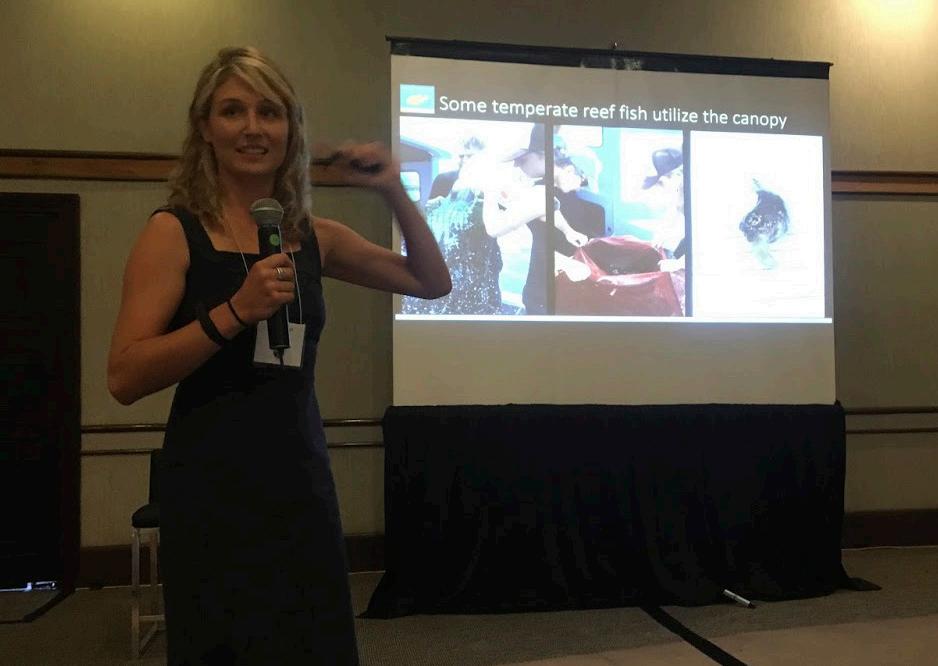
Every year, the Western Society of Naturalists holds an important conference largely focused on west coast nearshore marine ecosystems. This year was the conference’s 100th anniversary and Reef Check attended in force! Reef Check staff from north, central and southern California travelled to Ensenada, Mexico to present data collected by citizen science divers to the larger scientific community.
Tristin McHugh presented data on the status of North Coast fish populations in the five years after the onset of Sea Star Wasting Disease and the phase shift of that region’s kelp forest to urchin barrens. Fish populations have varied by location and by species but interestingly, many species appeared to undergo a big increase around 2016 before dropping back down to historic levels this year. The cause of this apparent spike in populations is so far a mystery and Reef Check is going to be studying this phenomenon going forward.
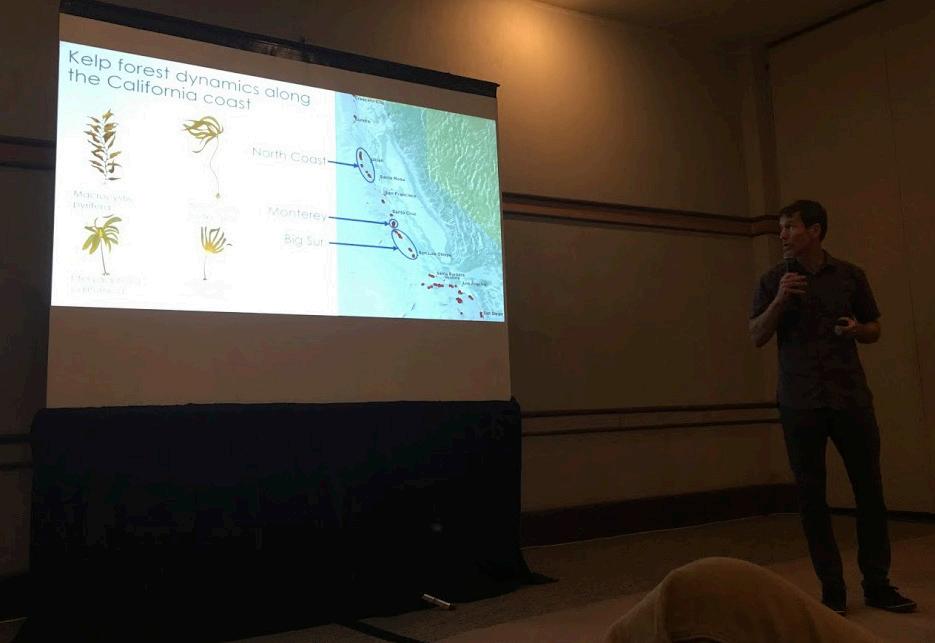
Dan Abbott presented data collected by Reef Check’s team of volunteer divers on the varied response of kelp forest ecosystems to environmental stressors that have occurred off the California coast the last few years, including the loss of sea stars, marine heatwaves, and the dramatic increase in the purple urchin population. Responses in kelp forests to these events have varied from the North Coast where there has been an almost complete loss of kelp, to Big Sur where there has been little change and kelp forests remain entirely intact. Along the Monterey Peninsula and in Carmel Bay responses were mixed with some sites becoming urchin barrens, some sites remaining kelp forests, and some sites becoming a mosaic of barren and forest areas. Most interesting are sites along the outer peninsula that went from being a forest of giant kelp, to a complete urchin barren for a number of years, back to a kelp forest but now dominated by the canopyforming bull kelp.
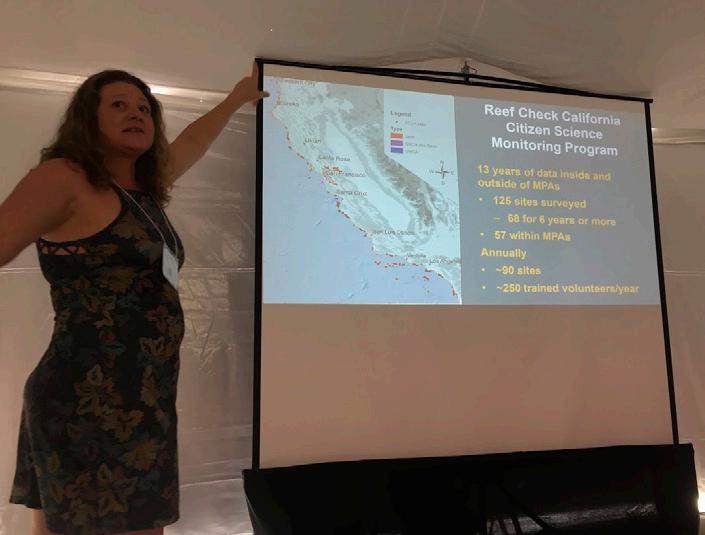
Selena McMillan gave a talk on how monitoring programmes have to aprotocols to capture the nature of a changing ocean. Examples she gave included Reef Check expanding the list of species it counts by adding previously rarely seen organisms that have become much more common either due to range expansions or species invasions. Selena also talked about how protocols that accurately characterise an ecosystem in one area may not accurately characterise a similar ecosystem in a different area. In particular, she mentioned kelp forests in the southernmost part of the state where some kelps exhibit different growth forms or occur deeper than in the rest of the state, requiring Reef Check to adapt its protocols so that these areas are recorded as the lush areas of kelp that they are.
In addition to presenting data collected by citizen scientists, Reef Check’s staff was able to engage and collaborate with other marine scientists to further our understanding of California’s kelp forests and the changes these ecosystems are experiencing.
BACKSIDE OF CATALINA TRIP OFFERS UP EPIC CONDITIONS AND IMPORTANT DATA
BY SELENA MCMILLAN, REEF CHECK CALIFORNIA SOUTHERN CALIFORNIA MANAGER
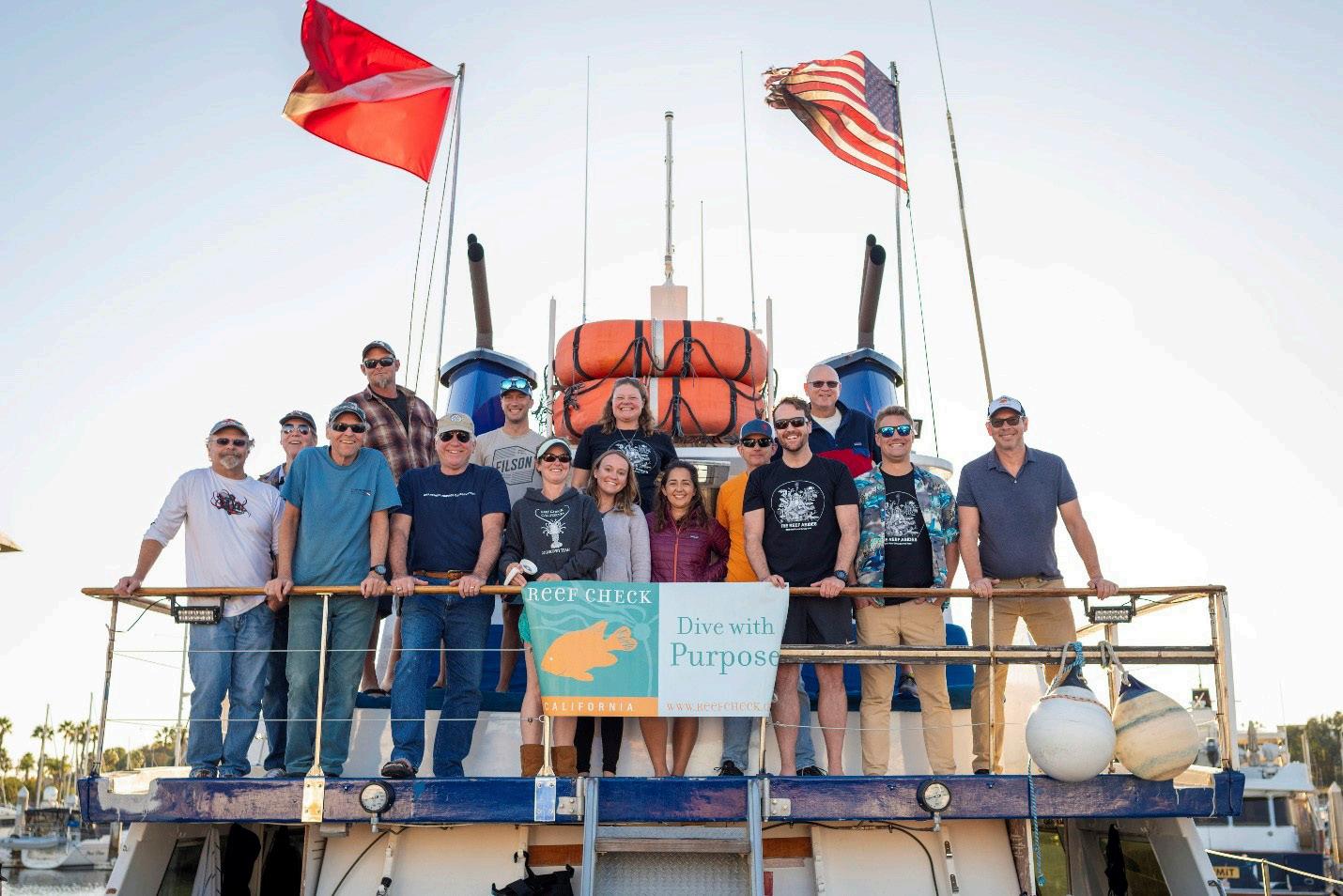
Photo by Rob McClelland
We did it again! The Reef Check California trip to the Backside of Catalina Island for 2019 was a tremendous success!
On the weekend of November 23rd and 24th , thirteen volunteer divers completed surveys at all 5 sites located inside and outside of the Marine Protected Areas (MPAs) along the far coast of Catalina Island. We were also able to exchange temperature loggers at 3 of the sites for our Climate Change Monitoring Program.
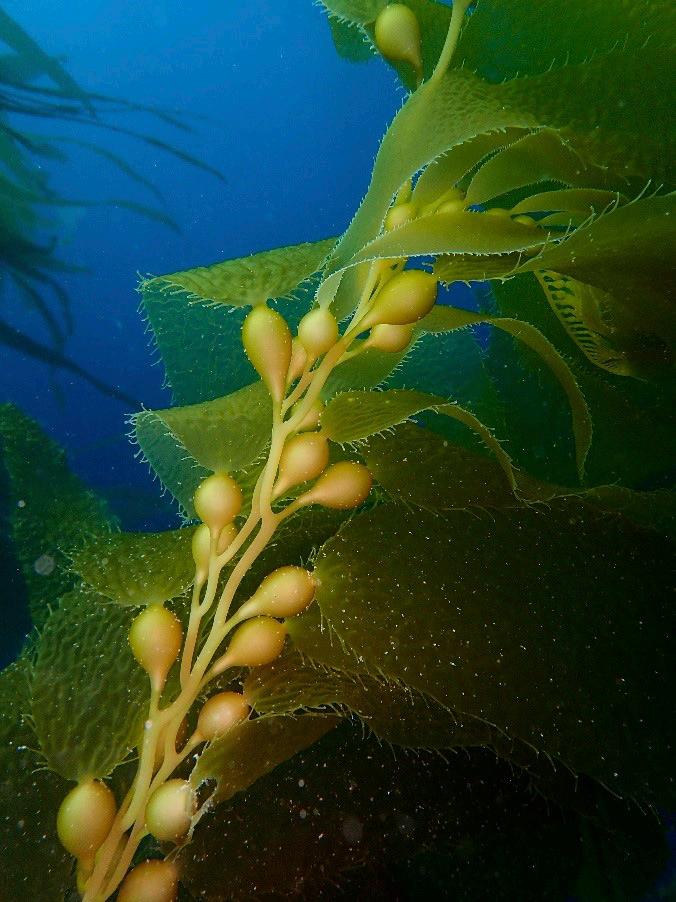
Giant Kelp
Photo by Chris Glaeser
We boarded the recreational dive boat, the Bottom Scratcher, Friday evening to cruise overnight to the backside of Catalina Island. Due to recent storms, we were surprised to wake up to epic conditions with extremely calm seas, clear weather, and, relatively, little swell. It was magical!
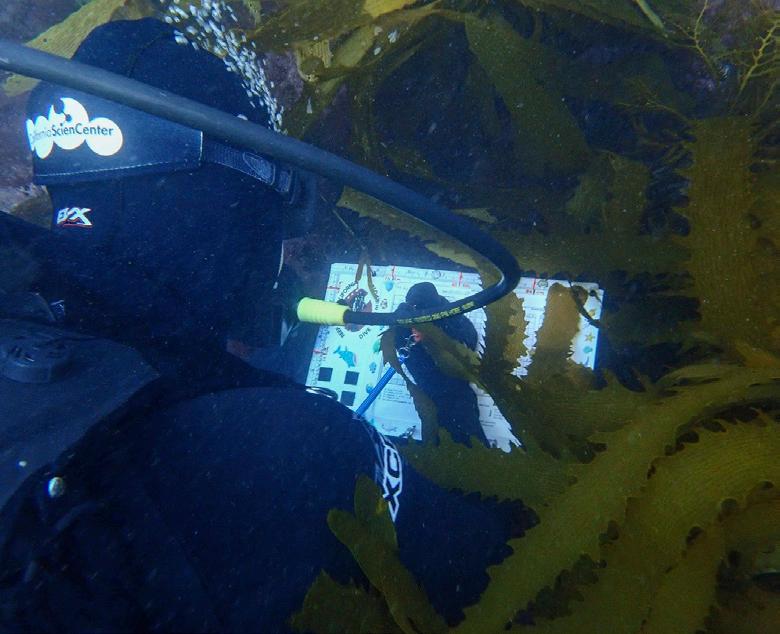
RCCA volunteer diver, Greg Moger, completing a UPC (Univorm Point Contact) survey.
Photo by Chris Glaeser
The conditions underwater were even better and made our work very easy and enjoyable. The water was warm at about 64°F (17°C) and the visibility was incredible! We had at least 10 metres (about 33 feet) at most of our sites. We worked our way along the dramatic coastline from east to west, working hard, but also having a wonderful time. We gathered information on tons of fish, invertebrate and kelp species and even had a few sea lions and a couple of harbour seals join us during our dives. And, of course, the trip would not have been complete without a couple of magnificent sunsets.
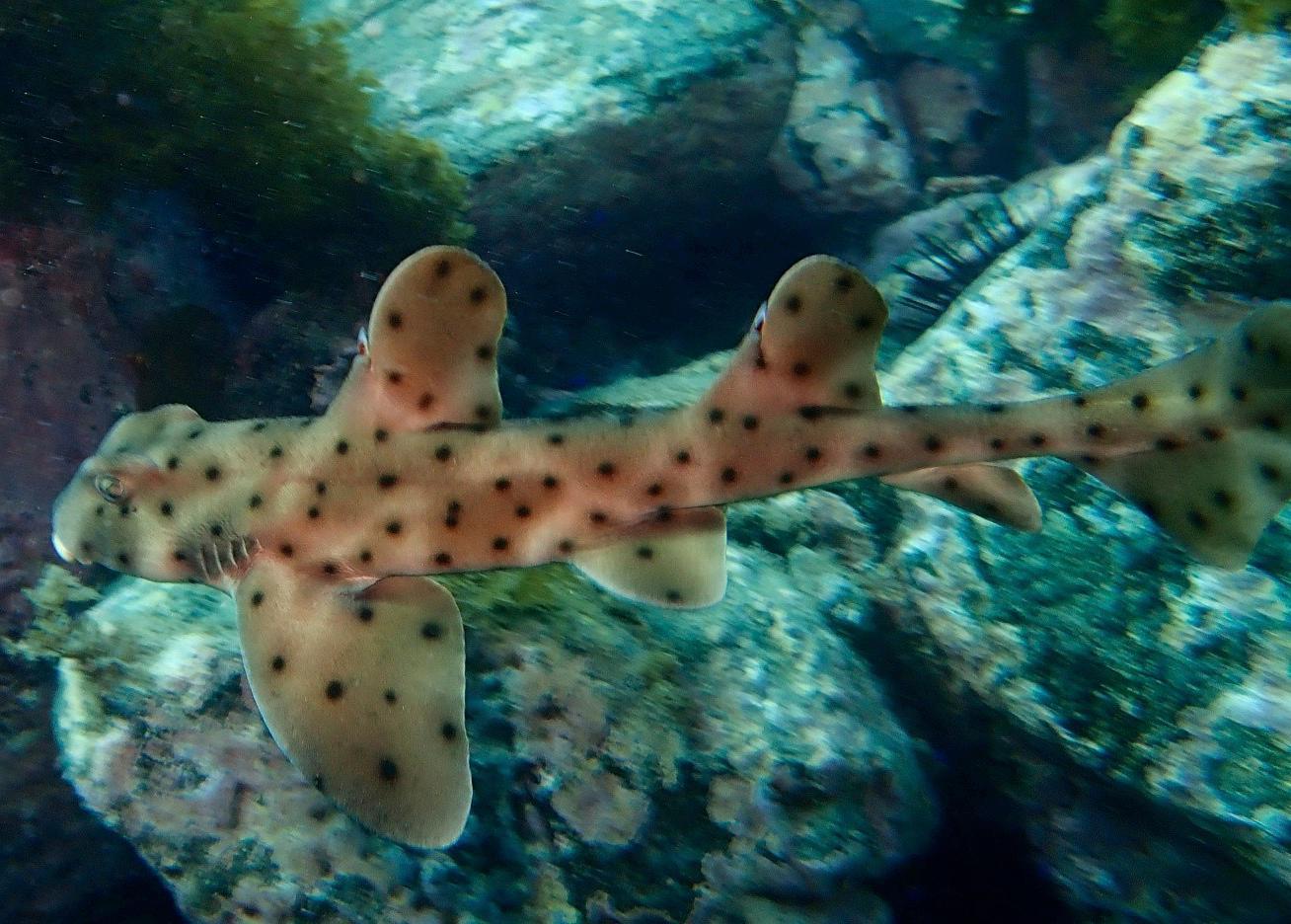
Horn Shark
Photo by Chris Glaeser
Without the incredible work of the amazing volunteers that joined us for this adventure, the important information collected on these unique and dynamic rocky reefs would not have been possible. Thank you to all of these hardworking folks, the crew of the Bottom Scratcher, and Captain Kevin Bell for a fantastic trip! And we cannot forget our wonderful sponsor, Southern California Edison, for their support of these efforts.
ITALIAN ECODIVER DIVES WITH PURPOSE IN INDONESIA
BY GIULIA ZINI, REEF CHECK ECODIVER PHOTOGRAPHY REEF CHECK ITALY
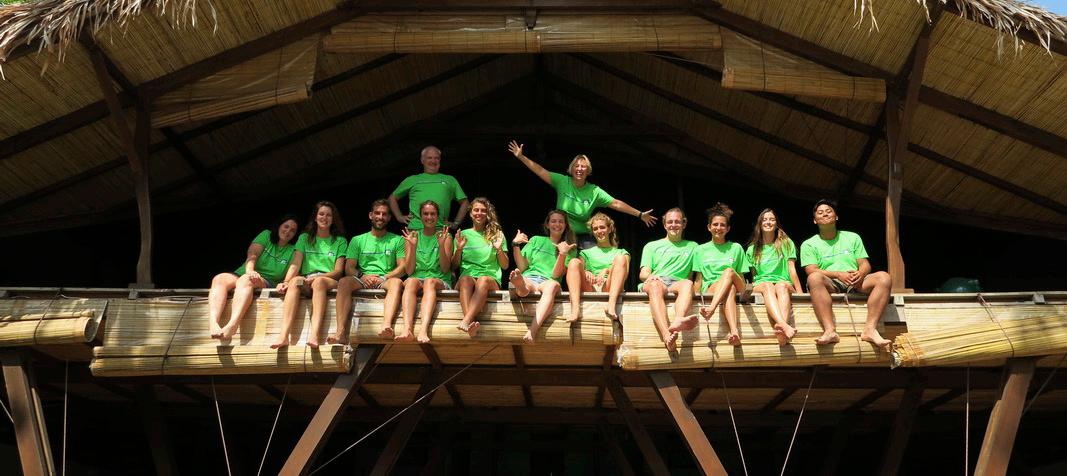
It’s a cold December morning in Italy. Looking out of the window, a thick fog is enveloping everything it meets, but my mind races back and I immediately remember an image of a coral garden. Just two months prior, on the other side of the world, I opened my eyes underwater and enjoyed a new landscape I had never seen before: through my mask I explored the seafloor in front of Bangka, an island in Sulawesi, Indonesia at the centre of what is called the Coral Triangle.
Together with other young marine biologists from all over the world, we went there, sharing the same great passion and the same goal: to learn more about the fascinating world of corals, which are among the most threatened ecosystems in the world. Humans, directly or indirectly, are responsible for overfishing, water pollution, climate change, along with other factors. We went to Indonesia to research and find out more about how to protect coral reefs from these threats, because we want to save the oceans we love. That’s why we participated in this workshop, that’s why we applied and travelled for so long – some more, some less – before finally arriving in this paradise, and it absolutely is. Believe me.
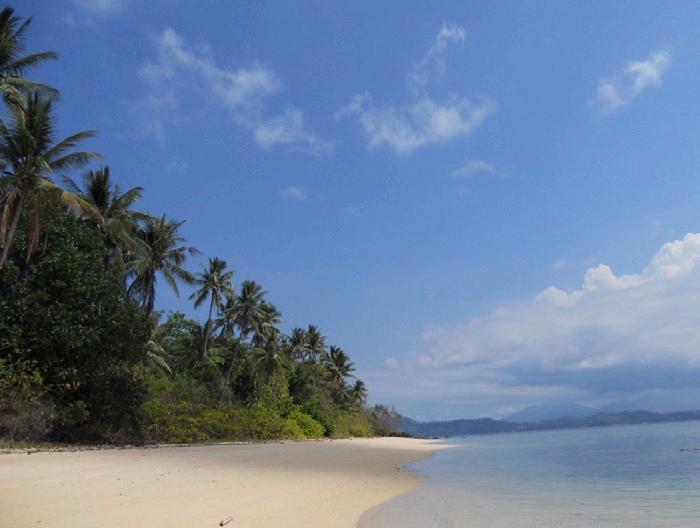
In Bangka, we alternated between theoretical lessons, seminars and sea sessions, allowing us to put our knowledge into practice. We learned how to distinguish the species of coral, methods to measure their health and how to estimate bleaching, and more. These are methods designed by Reef Check for volunteers. Citizen science encourages ordinary people to participate in scientific research, providing the scientific community with important data, which are then made available to everyone. I think research should not be confined to the scientific community. It’s important to share the results with the community; otherwise, discoveries remain only relevant for science and not the general public. Conservation must not be the sole business of conservationists; it must be achieved by everyone or we risk not being able to reach our goals. Thus, I believe it’s important for people to contribute in whatever way they can; a good start would be participating in projects such as the one conducted by Reef Check in tropical and temperate seas.
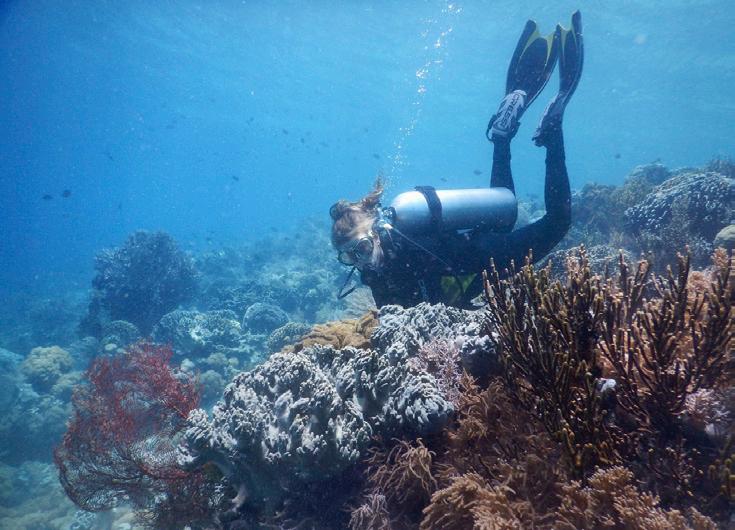
Reflecting now, more than two months later, I would love for anyone to witness what I experienced in Indonesia. The days were intense – seminars and dives occupied most of our time – and I was always eager to arrive the next day and learn more so that I could apply the new skills on a dive; utilise this newly acquired awareness and see things with new eyes. Things which were there before now appear differently, and a profound appreciation comes with knowledge.
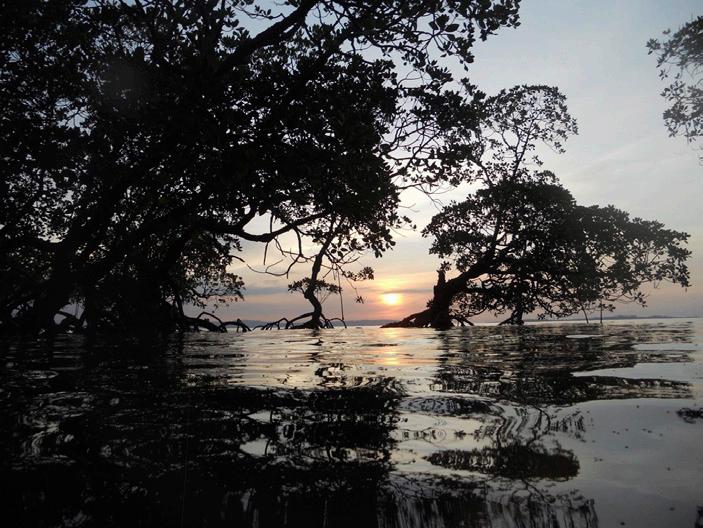
I have met so many young people in Indonesia who had a strong, likewise desire to learn and this experience, on the other side of the world, helped me grow. This is what we need: an ongoing learning process. We must continue conserving the oceans and we can achieve this goal with the help of people all around the world who have the same hope. I will treasure this experience wherever I’ll go which will remain indelible in my memory. Today, I feel grateful to be able to share this experience with you.
2019 YEAR IN REVIEW OUR REEFS NEED YOUR HELP
BY JAN FREIWALD, EXECUTIVE DIRECTOR
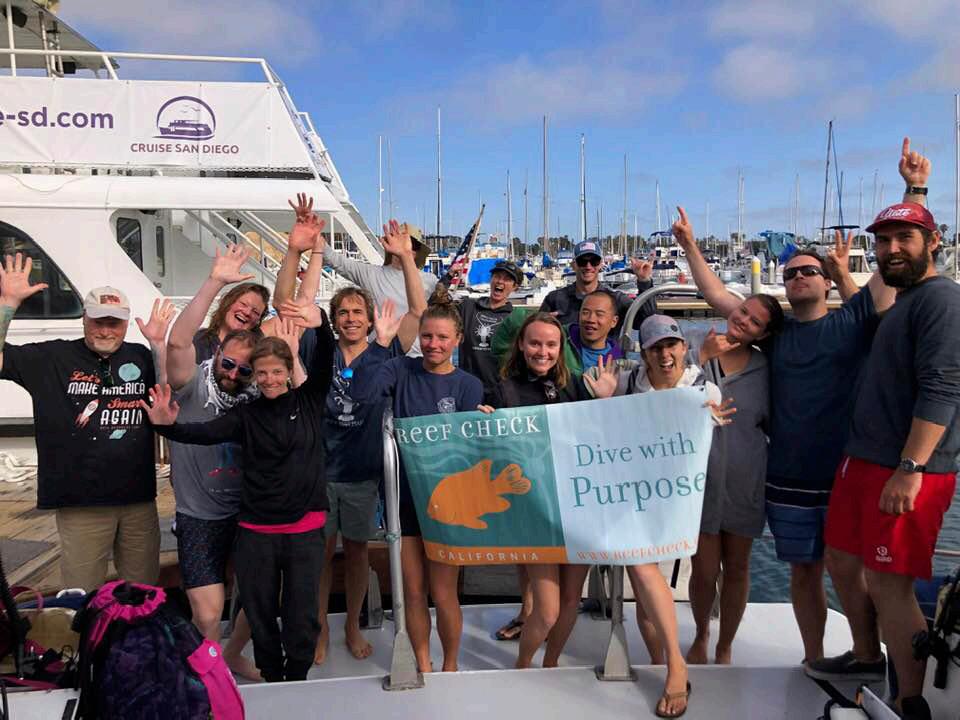
Thanks to all our friends and supporters help, Reef Check has achieved its goals in education, research and conservation in 2019. We could not have done this work without you!
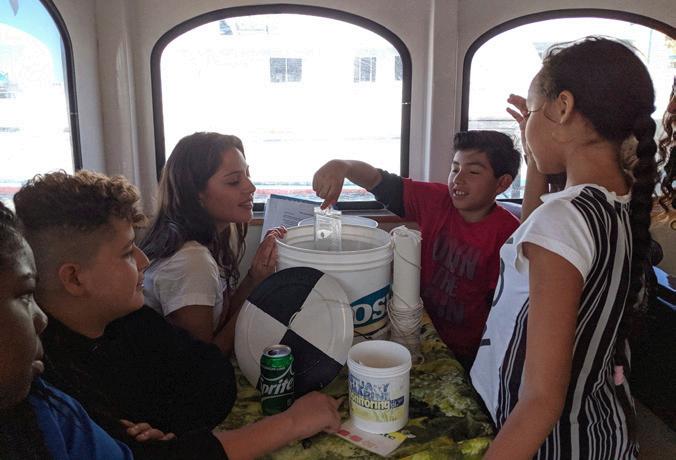
Our education and citizen science programmes have grown worldwide and hundreds of volunteers have worked tirelessly for the protection of reefs from the devastating effects of overfishing, pollution and climate change. While we have seen many negative impacts on our reef ecosystems, we also have some good news to report. Twenty years of Reef Check data showed that corals can now withstand higher temperatures than they could a decade ago, suggesting they are becoming resistant to the effects of rising water temperatures. In California, despite large stretches of the coast still being devastated by the loss of kelp forest, we have also seen local recoveries of kelp forest habitats.
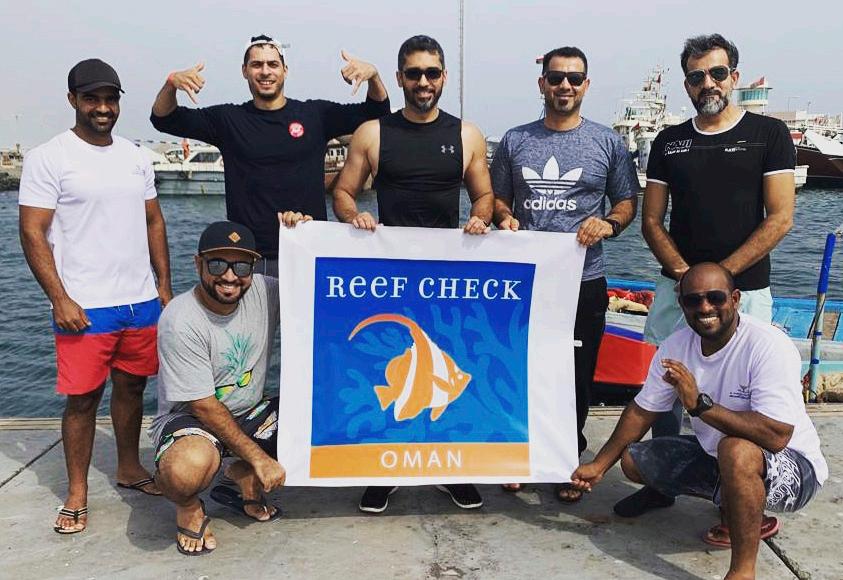
We are very grateful to you for contributing to our successes. Here are a few highlights of what your support made possible in 2019:
• We certified over 800 volunteer citizen scientists and 20 Trainers in coral or kelp forest monitoring in 21 countries around the world and here in California;
• We completed over 250 coral reef surveys in 17 countries and over 100 surveys of kelp forests and marine protected areas in California;
• We conducted seven EcoExpeditions – two in California to the Northern Channel Islands and along the Big Sur coast, and five worldwide to Colombia, Indonesia, Madagascar and the Maldives;
• We taught almost 300 middle & high school students in Los Angeles about the oceans and the threats they face through our EMBARC marine biology education programme; • We started a partnership with Outward Bound Adventures to provide marine science education and scuba diving training to urban youths in Los Angeles County;
• A group of dedicated volunteers in central California has started experiments with purple urchins to see what can be done about the loss of kelp forests;
• Reef Check Maldives found against expectations that corals are showing some resilience, adaptability and even recovery from a massive die-off in 2016.
All of these efforts will continue into next year and as we look forward to 2020, we need your help to continue Reef Check’s global efforts to educate young people and to conserve the reefs that we all depend on. Please consider ending 2019 with a tax-deductible contribution to Reef Check. Your generous contributions make our work possible.










